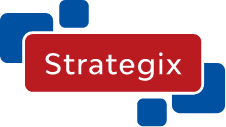Let’s start with the definitions;
Human Intelligence
[mass noun]
the ability to learn, understand and think in a logical way about things; the ability to do this well
Source: Oxford Dictionary
Artificial Intelligence
[noun]
Created with the intention to replicate the intelligence humans hold. More specifically, the ability to reason, find meaning, learn from experiences as well as generalise.
Example: researchers have taught some computers to identify the personality traits of a person based on what Facebook posts they like, more accurately than their human friends.
Business Intelligence
[noun]
A set of architectures, methodologies, applications, platforms, processes and technologies that analyse and apprehend raw data into meaningful insights and reports used to guide the business in strategic and tactical actions and decision–making at all levels of business.
Example: social network processing millions of events every day in order to make real-time product roadmap decisions.
Compositions
What does Artificial Intelligence comprise of?
Science and technology.
More specifically, mathematics, computer science, biology and psychology.
What does Business Intelligence comprise of?
Business analysis tools.
More specifically, online analytical processing (OLAP), ad-hoc analytics and enterprise reporting.
Uses
Artificial Intelligence Uses
Handwriting recognition, vision systems, expert systems, speech recognition, intelligent robots.
Business Intelligence Uses
Data warehouse, data mining, digital dashboards, querying and reporting software, and business activity monitoring.
Disadvantages
Artificial Intelligence Disadvantages
Threats to;
- Human dignity
- Safety
- Privacy
Business Intelligence Disadvantages
- People and organization
- Technology and data
In conclusion, both aid in making your business work systematically and flawlessly.






